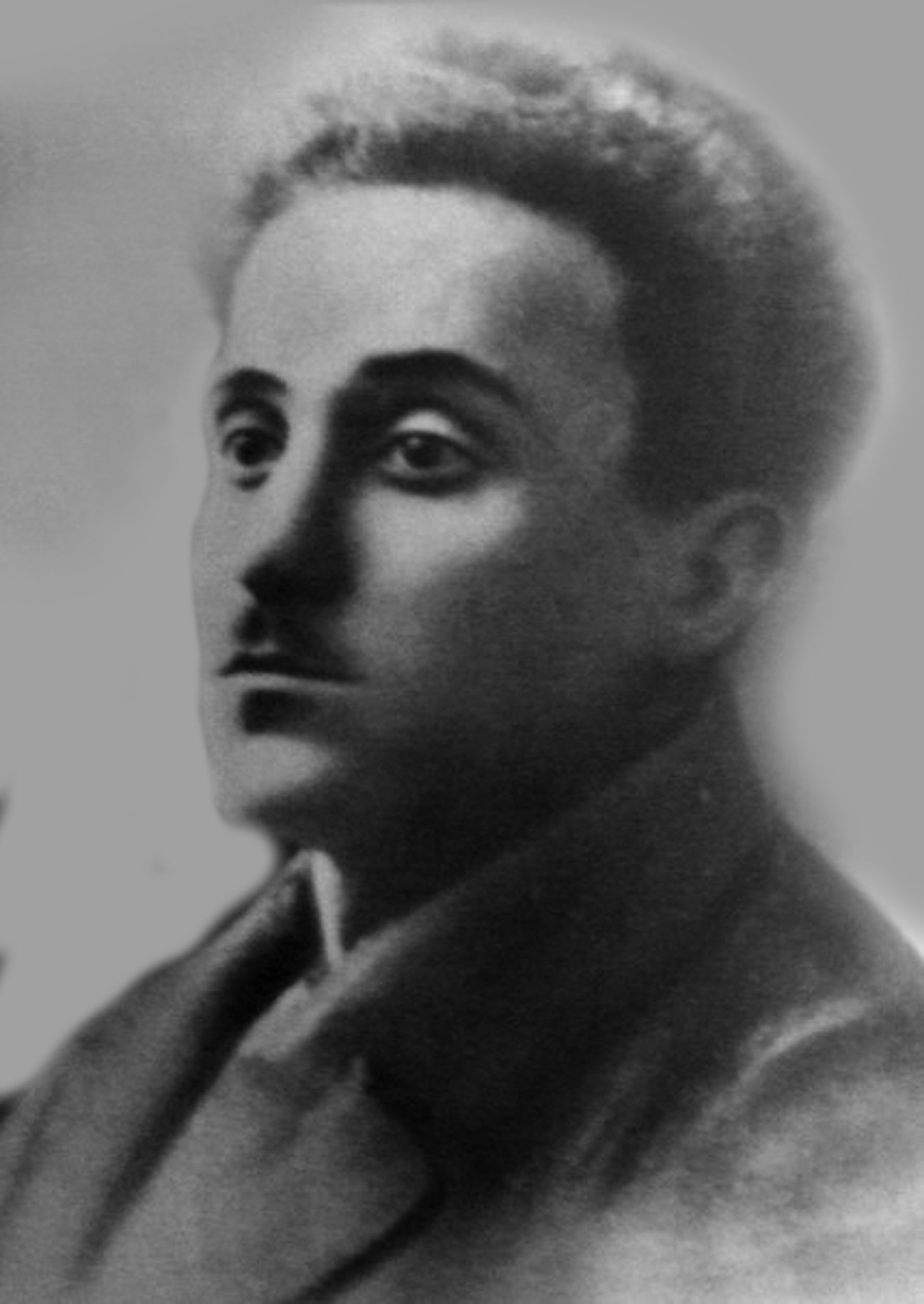Graneli Terenti

Terenti Graneli (real surname – Kvirkvelia) [3 June (according to other sources, 25 November) 1897, Tsalenjikha – 10 October 1934, Tbilisi] was a Georgian poet.
At the age of 7, he was enrolled in the village school, but due to extreme poverty, he had to leave after the 6th grade. Afterwards he was an apprentice in his father's workshop. The harsh conditions left a deep mark on his character.
In 1918, he moved to Tbilisi and lived in great poverty, working for the railway—first as a car coupler, then as a conductor, and later as a courier for the newspaper People’s Affairs (Sakhalkho Sakme), which published his first poem. At that time, he became interested in the ideas of national liberation (publishing in the newspapers People’s Affairs, Tribuna, Akhali Nakadi, 1917–1920).
According to his sisters, he chose the pseudonym Graneli based on the Latin word granum (grain), saying: "I too am a small, orphaned grain, the tiniest part of the universe."
Fascinated by Symbolist poetry, in 1919 he published the art-literary newspaper Violet (Ia) and the magazine The Mirror of Chronos (Kronosis Sarke). In 1920 and 1921, he published two small poetry collections: Panashvidebi and Samgloviaro Khazebi. In 1922, he published a book of poems titled Graves from the Soul (Sulidan Saflavebi), which received excellent reviews from famous writers of that time.
His bohemian lifestyle brought introduced the sentiments of despair, loneliness, and hopelessness into his poetry: “A Hidden Plea”, 1921; “A Tear at Midnight”, 1922; “Blue Distance”, 1922; “The Poet Prisoner”, 1926; “Drops of Blood from the Heart”, 1924, etc.
In 1924, he published a new collection of poems, Memento Mori, which generated enormous interest. That same year, a literary evening was held for him at the Rustaveli Theatre, and a special newspaper issue was dedicated to him, where famous critics highly praised his poetry.
In 1926, Graneli published his final book. From 1928 onward, he suffered from deep depression. He spent the last four years of his life in psychiatric hospitals in Tbilisi and Surami. He was originally buried at the Peter and Paul Cemetery, but in 1987 his remains were reinterred in the Didube Pantheon of Writers and Public Figures.
Literary works: რჩეული, თბ., 1961; ლირიკა, თბ., 1972; რჩეული, თბ., 1979 (შეადგინა და წინასიტყვა დაურთო ლ. ალიმონაკმა); ასი ლექსი, თბ., 2005; ლექსები, თბ., 2010.
Literature: ა დ ა მ ი ა რ., ტერენტი გრანელი, თბ., 2008; ა ლ ი მ ო ნ ა კ ი ლ., კვირის წირვები, თბ., 1988; ვ ე რ უ ლ ა ვ ა თ., ტ. გრანელი, თბ., 2009; მეტრეველი ს., პოეზიის უმანკო მსხვერპლი - ტერენტი გრანელი, „ლიტერატურული ძიებანი“, XXXIV, 2013; სორდია ლ., ტერენტი გრანელის ბედისწერა, თბ., 2011; ცქიტიშვილი გ., ვიცი, დრო მოვა ჩემი გაგების, თბ., 1990.
L. Alimonaki


